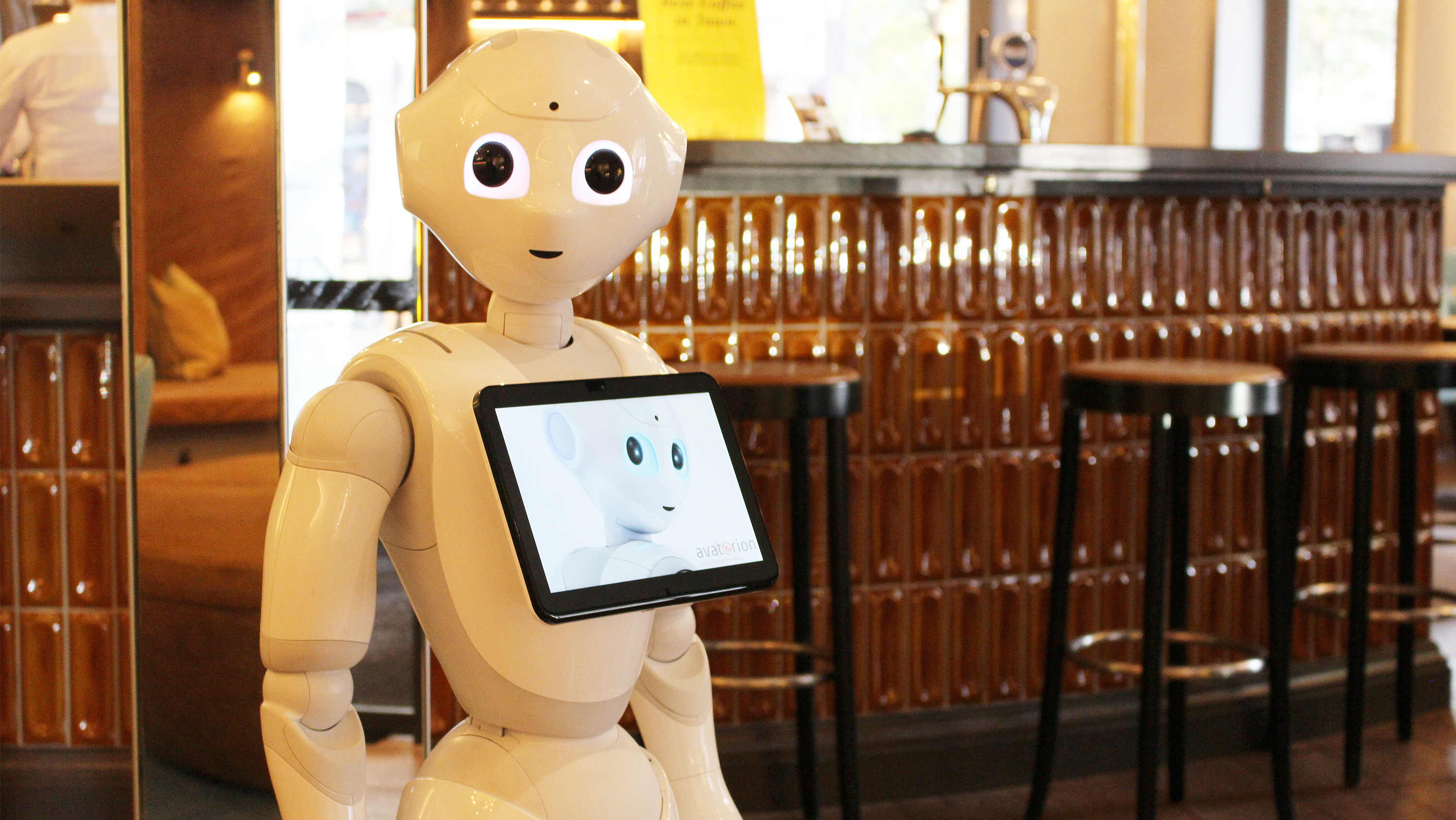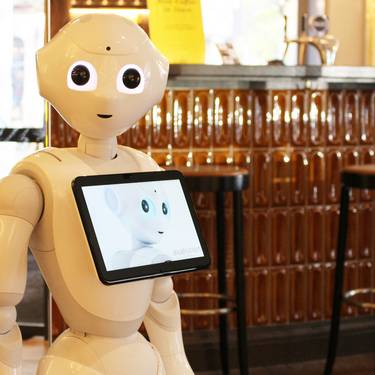Project at a glance
A team from the Institute for Tourism and Leisure is investigating the use of two different social robots in the hotel sector. The robots with different functionalities are deployed in two hotels in order to share the knowledge gained from the project as well as the associated opportunities and challenges with the Swiss hotel sector. The robots should not merely be a marketing fad, but should benefit the guests and optimize the work processes of the hotels through process automation. The aim is to simplify the guest journey in the hotel and to facilitate the digital cooperation of different tourism partners.
Project
Use of robots in the hotel sectorProject Leader
Mosedale Jan More about Mosedale JanInvolved parties
Avatarion, Opera Hotel, Welcome Hotels, HotellerieSuisse More about the involvedTeam
Knaus Dominik More about Knaus DominikFunding
Co-financed by Innotour (SECO - State Secretariat for Economic Affairs)Duration
September 2019 – January 2021
Initial situation
The hotel sector is characterised by a strong dependency on revenue from rooms and gastronomy and can hardly generate any additional sales. The high staff costs of over 42 percent – but also the increasing shortage of skilled workers – will force the hotel industry to break new ground in the future. The high wage costs are further exacerbated by the need to have a contact person available at the reception around the clock. This problem is to be addressed by using new technologies and robotics. The aim, however, is not to reduce employees, but to outsource recurring, simple tasks so that employees can concentrate on providing personal and individual hospitality.
Digitization and digital transformation are buzzwords, yet the hotel sector lags behind other business sectors in the application of digital technologies. In order to survive on the market, hotels must meet the needs and expectations of the new (digital) guests. Improving the guest experience and the service is a mandatory prerequisite for being successful in the market in the medium and long term. By using digital technologies, employees may gain more time for the guest, can improve the guest experience through personal support and at the same time realize additional sales. Time is increasingly become a rare commodity, so every guest wants to maximise his/her experience within a relatively short timeframe and wants to reduce 'unnecessary' activities (e.g., administration, check-in / -out etc. ) or, worse, wait for a service.
Project objective
The aim of the project is to make the robots fit for the hotel sector, so that they may be considered by all hotels as potential 'employees' in the future and thus to help them overcome the following challenges:
- Improving the guest experience
- Simplifying and digitalising the guest journey in the hotel
- Streamlining and automating work processes at the hotel reception
- Supplementing the employee presence with robots to ensure availability 24/7
- Optimising and predicting staff costs through technical support (e.g. instead of one night porter per hotel, one contact for three hotels at night)
Interim result
The robot Pepper has been in use at the Opera Hotel in Zurich since November 2019. The project team has held two employee workshops and observed the interaction between guests, employees and Pepper. Employees also keep diaries of their experiences with Pepper. In-depth interviews will be conducted in autumn 2020 with all reception staff.
The robot Cruzr has been in use at the Hotel Allegra Lodge in Kloten since early July 2020 and the project has started its research activities.
Parties involved
The project is implemented by the Institute for Tourism and Leisure (ITF) and co-financed by Innotour (SECO - State Secretariat for Economic Affairs). Other participants are Avatarion, the Opera Hotel, Welcome Hotels and HotellerieSuisse.




